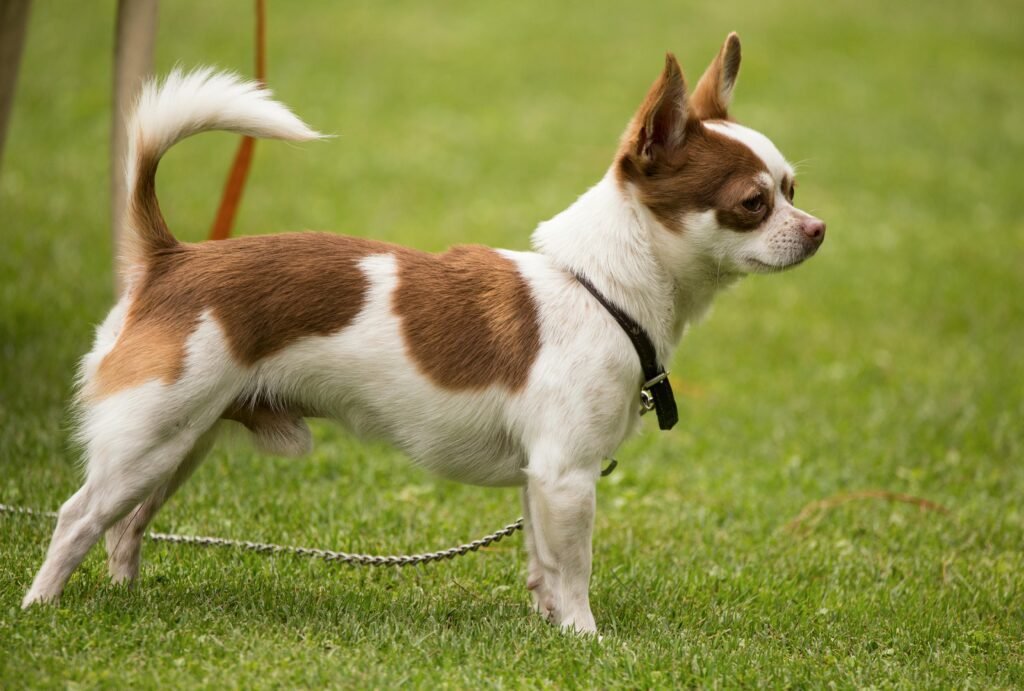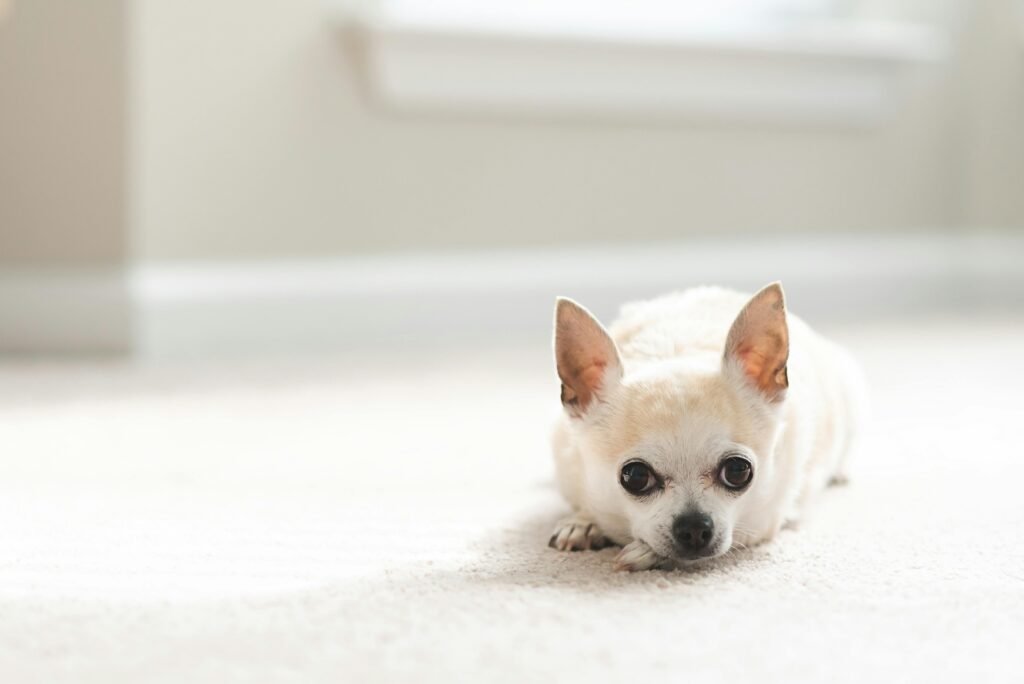Do Chihuahuas Get Cold Easily? Exploring the Cold Weather Challenges for Chihuahuas and Effective Solutions
Chihuahuas are tiny bundles of energy and love, but if you’ve ever wondered if they get cold easily, you’re not alone.
Understanding how these little dogs handle cold weather is crucial for their health and comfort.
This article dives deep into why Chihuahuas are sensitive to cold, how to recognize when they’re chilly, and the best ways to keep them warm and cozy.
Understanding Chihuahua’s Physical Characteristics
Chihuahuas are the smallest dog breed, typically weighing between 2 to 6 pounds. Their petite size and delicate frame make them particularly vulnerable to cold weather.
They come in two coat types: smooth and long-haired. Smooth-coated Chihuahuas have short, thin fur, offering minimal insulation, while long-haired ones have a bit more protection but still not enough to fend off the cold effectively.
Their thin skin and low body fat further reduce their ability to retain body heat, making them more susceptible to the chill compared to larger, more robust breeds.

Do Chihuahuas Get Cold Easily?
Yes, Chihuahuas get cold easily due to their small size, low body fat, and thin coat. Their petite frames and lack of natural insulation make them highly susceptible to chilly temperatures.
Additionally, their high surface area to volume ratio means they lose body heat more rapidly than larger dogs.
Even moderately cold weather can pose a risk to their comfort and health. It’s essential to monitor their exposure to cold and take measures to keep them warm and cozy, especially during colder months or in chilly indoor environments.
Why Chihuahuas Are Prone to Cold
Chihuahuas are particularly prone to cold due to several factors. Firstly, their small size and low body mass mean they have less natural insulation. This makes it harder for them to retain body heat compared to larger dogs.
Additionally, they have a high surface area to volume ratio, which causes them to lose heat more rapidly. Their thin coats, especially in the short-haired variety, provide minimal protection against the cold.
Furthermore, Chihuahuas have low body fat, which reduces their ability to insulate themselves. All these factors combined make Chihuahuas more susceptible to chilly temperatures.
Signs That Your Chihuahua Is Cold
Recognizing when your Chihuahua is cold is crucial for keeping them comfortable and healthy. Here are some common signs:
Shivering and Trembling: Just like humans, Chihuahuas shiver to generate heat when they are cold.
Curling Up or Seeking Warmth: They may curl up into a tight ball or seek out warm spots in the house, like your lap or a sunny patch.
Lethargy and Slow Movements: Cold temperatures can make them less active and more sluggish than usual.
Whining or Barking: They might vocalize their discomfort if they are feeling too cold.
Cold Ears and Paws: Touching their ears and paws can help; if they feel cold to the touch, your Chihuahua is likely cold.
Restlessness: They may show signs of restlessness or inability to settle in one spot, trying to find a warmer place.
Burrowing: Chihuahuas might burrow under blankets or pillows to escape the chill.

Health Risks of Cold Exposure
Cold exposure can pose several health risks to Chihuahuas:
Hypothermia: Prolonged exposure to cold can lead to hypothermia, where their body temperature drops dangerously low. Symptoms include shivering, lethargy, and pale gums, which can be life-threatening if not treated promptly.
Respiratory Issues: Cold air can aggravate respiratory problems, especially in older Chihuahuas or those with pre-existing conditions.
Frostbite: Extremities such as ears, paws, and tail can suffer frostbite in extremely cold weather, leading to tissue damage.
Arthritis and Joint Pain: Cold weather can exacerbate arthritis and joint pain, making movement painful for Chihuahuas, particularly older dogs.
Weakened Immune System: Consistent exposure to cold can weaken their immune system, making them more susceptible to infections and illnesses.
Skin Issues: Dry, cold air can lead to skin dryness and irritation, causing discomfort and potential skin infections.
Dehydration: Despite the cold, dehydration can occur as heating systems dry out the air, leading to less water intake.
Optimal Temperature for Chihuahuas
Chihuahuas thrive best in environments where the indoor temperature is kept between 70-75°F. This range helps ensure they remain comfortable and safe from the cold. Outdoors, temperatures above 50°F are generally safe for short periods, but anything colder can quickly become too chilly for them.
Wind chill and humidity also play significant roles; even moderate temperatures can feel much colder with high winds or dampness. It’s important to monitor these factors and adjust their environment accordingly to keep your Chihuahua warm and healthy.
Preparing Your Chihuahua for Cold Weather
Keep your Chihuahua warm with appropriate clothing:
Winter Clothing and Accessories: Invest in sweaters, coats, and booties designed for small dogs.
Importance of Proper Fitting Gear: Ensure the clothing fits snugly but not too tight to restrict movement.
DIY Dog Sweaters and Coats: If you’re crafty, making custom gear can ensure the perfect fit and style.
Indoor Comfort Tips
Create a warm and inviting indoor space:
Heating Pads and Warm Bedding: Use heating pads designed for pets and provide soft, warm bedding.
Using Blankets and Throws: Layer blankets and throws for your Chihuahua to snuggle under.
Creating a Warm Sleeping Area: Place their bed in a draft-free area, away from cold floors and windows.
Outdoor Exercise in Cold Weather
Even in cold weather, Chihuahuas need regular exercise, but it’s important to adjust their routines. Opt for shorter, more frequent walks to limit their exposure to the cold.
Ensure they wear appropriate winter clothing, such as sweaters and booties, to protect against the chill and icy surfaces. Be mindful of the ground conditions, avoiding icy and wet areas that could cause slips or discomfort.
Always monitor your Chihuahua for signs of cold, and bring them indoors if they start shivering or seem uncomfortable. This approach keeps them active while safeguarding their health.
Diet and Nutrition for Cold Weather
During cold weather, adjusting your Chihuahua’s diet can help them maintain body heat and energy levels. Consider providing a high-calorie diet to supply the extra energy needed to stay warm. Warming their meals slightly can make them more appealing and comforting.
Incorporate healthy fats and proteins to support their metabolism and overall health. Don’t forget hydration; ensure they have access to fresh water, as indoor heating can lead to dehydration. Including nutritious treats can also help boost their energy and keep them satisfied throughout the colder months.
Traveling with Your Chihuahua in Winter
Traveling with your Chihuahua in winter requires special precautions to keep them warm and safe. In the car, use blankets or a pet-safe heating pad to maintain a comfortable temperature. Never leave them unattended in a cold vehicle, as temperatures can drop quickly.
Pack essentials such as warm clothing, bedding, and any necessary medications for your trip. When staying at hotels or other accommodations, ensure they are pet-friendly and warm enough for your Chihuahua.
Always monitor them for signs of cold stress during travel, and plan frequent breaks to allow them to stretch and stay warm.
Special Considerations for Older Chihuahuas
Older Chihuahuas require extra care during cold weather due to age-related vulnerabilities. They may have a harder time regulating their body temperature, making them more susceptible to the cold.
Consider providing joint supplements to ease arthritis pain, as cold weather can exacerbate joint issues. Warm compresses can offer relief for achy joints and muscles.
Adjust their exercise routines to be gentler and more frequent to keep them active without overexerting themselves. Keep a close eye on older Chihuahuas for signs of discomfort or distress in cold weather, and consult with your veterinarian for personalized care recommendations.
Dealing with Snow and Ice
When dealing with snow and ice, take precautions to keep your Chihuahua safe and comfortable. Consider using snow booties to protect their paws from cold surfaces and harmful chemicals like salt and de-icing agents.
Apply paw balms to moisturize and protect their paw pads from cracking. Clear a path for them to walk comfortably, removing snow and ice from sidewalks and driveways.
Monitor your Chihuahua for signs of discomfort, such as shivering or lifting their paws, and bring them indoors if they seem cold. By taking these steps, you can ensure your Chihuahua stays happy and healthy during snowy weather.

Emergency Situations and First Aid
In emergency situations related to cold weather, knowing how to respond promptly can save your Chihuahua’s life.
If you suspect hypothermia, characterized by shivering, lethargy, and pale gums, act quickly to warm them up gradually with blankets and warm water bottles. Seek immediate veterinary care if symptoms persist or worsen.
Additionally, if your Chihuahua suffers from frostbite on their ears, paws, or tail, gently warm the affected areas and contact your vet for further guidance.
Being prepared to handle these emergencies can help ensure your Chihuahua’s safety and well-being during cold weather.
FAQs
Do Chihuahuas need sweaters all year round?
Chihuahuas don’t need sweaters all year, but they benefit from them in cold weather or cooler indoor environments.
Can Chihuahuas sleep outside in the winter?
No, Chihuahuas should not sleep outside in the winter as they are highly susceptible to cold and can develop hypothermia quickly.
How can I tell if my Chihuahua is too cold?
Signs include shivering, curling up, seeking warmth, and showing lethargy or slow movements.
Are there specific cold weather breeds?
Yes, breeds like Huskies and Malamutes have thick fur coats and are better suited for cold weather.
What are the best ways to keep my Chihuahua warm indoors?
Use heating pads, warm bedding, blankets, and ensure their sleeping area is draft-free and cozy.
Conclusion
Chihuahuas are more prone to cold due to their small size, low body fat, and thin coat. By understanding the signs of cold, preparing with appropriate clothing and bedding, and taking special care during outdoor activities, you can ensure your Chihuahua stays warm and healthy throughout the winter months. Keep a close eye on older Chihuahuas and be prepared for emergencies to protect your tiny companion from the chill.





